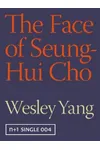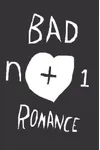Picture a Korean-American essayist who slices through the noise of modern identity debates with razor-sharp prose—meet Wesley Yang! Known for his fearless take on race, masculinity, and the Asian-American experience, Yang’s debut collection, The Souls of Yellow Folk, has cemented his place as a provocative voice in contemporary non-fiction. With a style that’s both piercing and personal, he invites readers to grapple with society’s toughest questions.
Born to Korean immigrants, Yang’s journey from a curious kid to a National Magazine Award-winning writer is a story of defying expectations. His essays don’t just analyze—they challenge, provoke, and linger, making him a must-read for anyone curious about the intersections of culture and identity.
The Making of Wesley Yang
Wesley Yang grew up in a Korean-American household, navigating the complexities of cultural expectations and American individualism. While details of his early life are sparse, his essays reveal a young man wrestling with the ‘model minority’ stereotype and the pressure to conform. This tension fueled his passion for writing, where he found a space to question societal norms. Yang began his career contributing to outlets like New York Magazine and n+1, quickly gaining attention for his bold, introspective style.
His big break came in 2008 with ‘The Face of Seung-Hui Cho,’ an essay for n+1 that tackled the Virginia Tech shooter’s motivations through a deeply personal lens. This piece, blending raw honesty with cultural critique, established Yang as a writer unafraid to confront uncomfortable truths.
Wesley Yang’s Unforgettable Stories
Yang’s debut book, The Souls of Yellow Folk (2018), is a collection of essays that explore race, identity, and masculinity with unflinching clarity. The title, a nod to W.E.B. Du Bois’s The Souls of Black Folk, is both a playful jab and a serious invitation to examine the Asian-American experience. Standout essays include ‘Paper Tigers,’ a National Magazine Award-winning response to Amy Chua’s Battle Hymn of the Tiger Mother, where Yang critiques the ‘bamboo ceiling’ limiting Asian success in corporate America.
Another gem, ‘The Face of Seung-Hui Cho,’ delves into the psyche of the Korean-American shooter, reflecting Yang’s own struggles with alienation. His essay ‘Eddie Huang Against the World’ profiles the chef and author, highlighting the clash between cultural authenticity and mainstream expectations. Yang’s style—sharp, empathetic, and unafraid of contradiction—makes his work both accessible and profound, tackling everything from pickup artists to internet dating with equal rigor.
Though some critics note the collection’s eclectic range strays from a cohesive focus on Asian-American identity, Yang’s ability to distill universal truths from specific experiences has earned praise from outlets like The New York Times and The Washington Post. His prose, described as ‘gonzo candor’ by O Magazine, blends investigative journalism with poetic insight, making each essay a journey.
Why Wesley Yang Matters
Wesley Yang’s impact lies in his refusal to pander. In an era of polarized identity politics, he carves out a liminal space, challenging both progressive orthodoxies and traditional stereotypes. His work resonates with readers who feel caught between cultural identities, offering a voice to the ‘peculiar burden of nonrecognition’ faced by Asian-American men. By blending personal reflection with cultural critique, Yang has inspired a new generation of writers to tackle tough topics with nuance.
His essays remain relevant, sparking conversations about meritocracy, masculinity, and the evolving role of Asian-Americans in a multicultural society. Yang’s fearless approach ensures his work will continue to provoke and inspire, making him a vital figure in contemporary non-fiction.
- Born: Korean-American, specific birth date unavailable
- Key Work: The Souls of Yellow Folk (2018)
- Awards: National Magazine Award for ‘Paper Tigers’
- Publications: New York Magazine, n+1, Tablet, and more
Snag The Souls of Yellow Folk and dive into Wesley Yang’s fierce, thought-provoking world! His essays are a rollercoaster of insight and emotion—perfect for anyone ready to question the status quo.


